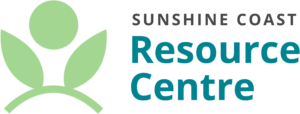A: If you have been sexually assaulted, there is help here on the Coast. Sexual assault can happen between intimate partners, friends, family or strangers. It includes any unwanted sexual activity, including grabbing, kissing, fondling and rape. In a 2014 government of Canada survey on the safety of Canadians, data showed that only five per cent of sexual assaults were reported to police.
For survivors of sexual assault here on the Coast, there is in-person, over the phone and online support available. You can get help if the sexual assault has just happened, or if it happened further in the past. For the sake of length, I can’t go into detail about all the supports or options out there. It would be valuable to connect with each of the contacts at the end of this article to fully understand exactly how each resource can support you or someone you know, and which option is the best for you.
At the Sechelt Hospital, there are healthcare providers specializing in supporting those who have experienced sexualized violence. They can offer medications to prevent pregnancy, testing for sexually transmitted infections and offer various tests to make sure you are healthy. They can help you report to police, if you choose to do so. To access support at the hospital, you or a support person can: a) call the Sechelt Hospital emergency department directly (604-885-2224) and ask to meet with a forensic healthcare provider at the hospital; b) go in-person (or in-person with a support person) to the emergency department and request to see a forensic healthcare provider.
What to expect at the hospital
The Vancouver Coastal Health pamphlet “Medical-Forensic Services for Sexual Assault” outlines important information to help you know what to expect if you go to the hospital. I include it here so people can understand what to expect:
1. When you arrive at the emergency department at the hospital and the staff asks you the reason for your visit, you have the option to simply say “personal.”
2. When you are seen by an emergency department triage nurse, you still don’t have to say anything about your experience. The triage nurse will check for physical injuries to make sure you are safe. At that time you can ask for a forensic health-care provider.
3. You will likely have to wait for the forensic healthcare provider to arrive at the hospital because they are not on-site at all hours. While you wait, you will be in a quiet area or in the waiting room depending on space available. If you are waiting, the hospital can help you contact a support person, like a friend, to wait with you if you want.
4. The forensic health care provider and emergency room doctor will come in to see you and listen to your experience of what happened. At that time, you can choose to consent (or not) to one of three options for care from them.
These options are:
a. Medical care (A physical assessment, medications to prevent pregnancy and sexually transmitted infection, offer to collect urine and blood samples, and sharing of useful resources with you).
b. A stored forensic exam and medical care: Everything in option one and collecting swabs from relevant body parts, with your consent. A person can choose to provide urine, blood samples and clothing. Samples will be stored for up to one year while a person decides to report the incident to police or not.
c. A report to police and forensic exam and medical care: This option includes a full medical exam and forensic exam with samples and reports sent to the RCMP.
Each person’s situation is different. Here are a range of options where you can be supported in the way you choose: 9-1-1 – If you or someone you know is in immediate danger from assault or abuse; Sechelt Hospital Emergency Department (604-885-2224); Community Based Victim Services (604-885-0322) offers support to survivors of violence in relationships, sexual assault, criminal harassment, child abuse/assault, and other forms of family or sexualized violence. It’s confidential and supports survivors of all ages and gender identity. Here there is also the option of third party reporting – when someone else reports the crime to the police so that a report is made – but where there is no police involvement for the victim; Police Based Victim Services (604-885-5554) gives victims of crime and other traumas, as well as their family members and witnesses, emotional support, practical assistance and appropriate referrals to community resources; Yew Transition House (604-885-2944) – this 24-hour phone line offers a compassionate listening, support and help connecting to resources; Women’s Outreach Program (604-741-5246) – this free confidential service aims to increase the safety and well-being of all women who are at risk, including women of colour, First Nations women, lesbian/bi/queer women, trans women and women of differing ages and abilities; BC Crisis Centre (1-866-661-3311/ Teletypewriter 1-866-872-0113/Chat links and youth chat links via www.crisiscentre.bc.ca); The Crisis Centre – this is a phone/chat service where you can connect with a crisis responder; Victim Link BC – (Call/Text 1-800-563-0808/ Teletypewriter: 604-875-0885/Email: VictimLinkBC@bc211.ca) – Confidential, multilingual service available across B.C. and the Yukon 24 hours a day, seven days a week with information and referral services to all victims of crime and immediate crisis support to victims of family and sexual violence.
All of the previous resources are there for everyone. As well, here are some youth-specific resources: Community-based youth victim services – a free, confidential support service. They can suggest options or ideas that are available to you in your particular situation. Call 604-885-0322 (office) or 604-865-0987 (cell) to speak to a victim services youth worker. You can leave confidential messages 24/7. Snapchat: vsyouthoutreach / TikTok: @vsyouthoutreach/ Instagram: Victimservices.youthoutreach; Sunshine Coast youth health clinics at the various coast locations -Gibsons Health Unit- 604-984-5070; Sechelt Health Unit- 604-885-5164 / Pender Harbour Health Centre – 604-883-2764.
All of these supportive resources – and even more that are not listed here – exist so that survivors of sexual assault can get emotional, psychological, and legal guidance they choose, in the way they choose, in order to navigate their own path towards healing and justice. ***Note: If you would like information about accessing free legal advice or representation, please contact the Resource Centre directly.
Angie Theilmann is an information and referral specialist at the Sunshine Coast Resource Centre, your community information hub. The Resource Centre is open Monday to Thursday 10 a.m. to 2 p.m. Appointments are recommended to be sure we are available to help you. Note: on some days, we can book clients after 2 p.m. Contact us: help@resourcecentre.ca or 604-885-4088

